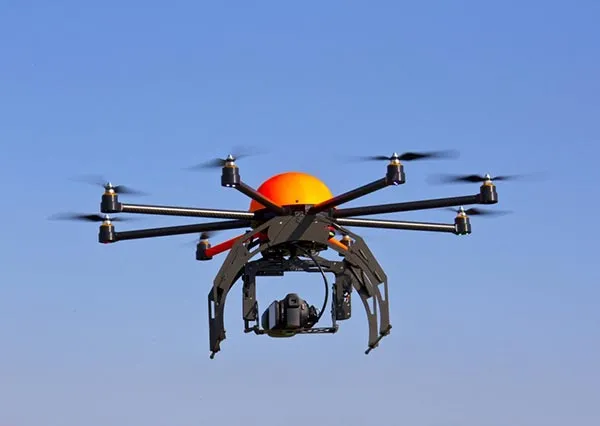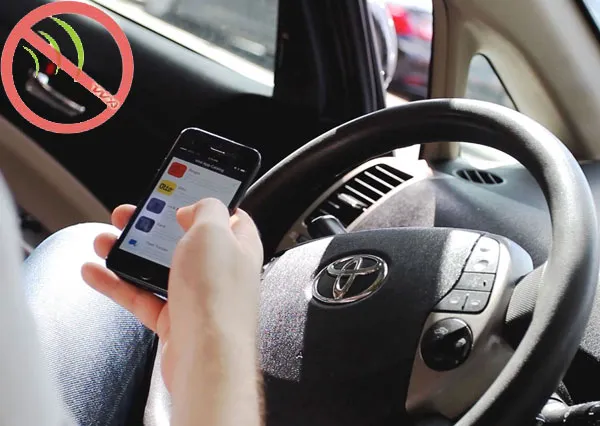
Exams are stressful, so it’s understandable that some people would want to circumvent the hard work of studying by instead cheating. So the means of cheating with the development of science and technology more and more advanced, so educators are increasingly difficult to prevent students from cheating. To help teachers, researchers in China have created a mobile phone jammer. Using this kind of equipment can effectively prevent students from cheating
How to use cell phone jammers to prevent cheating?

While new forms of cheating are endless, but as long as the use of electronic signals to cheat, you can use jammers to stop.
In Russia
School bosses in Russia began their clamp down after noticing sneaky students had been using their smartphones to look up answers and and hints on the Internet during tests.
In a major crackdown, telecoms business, Rosobrnadzor, advised schools to use metal detectors at the entrances of exam rooms and if possible, 3G jammers, in a bid to ban mobile phones and tablets from the classroom.
Some believe that teaching kids not to use phones in class is simply a matter of teaching them respect. But when they see their parents using them at the dinner table, walking down the street and even driving, what are kids supposed to think?

In India
In order to prevent hi-tech cheating, statutory examination-conducting bodies have been allowed to use mobile-phone jammers.
The notification says that in order to guard against random proliferation of powerful jammers as well as to ensure that they don't unduly interfere with existing mobile-phone networks, a permission from secretary (security) in the cabinet secretariat has been made mandatory.
Among the bodies allowed to procure jammers include state police forces, jail authorities and central government agencies like Intelligence Bureau (IB) and Research and Analysis Wing (RAW).

In China
For students taking the national university entrance exams in China, there’s now one more little thing to worry about: drones, deployed to catch cheaters.
The drone is a hexarotor and, as reported by China’s state-owned ECNS news service, it will scan for suspicious radio signals from exam-takers. While that won’t stop any cheaters who use low-tech methods to get around difficult questions, it will detect any number of advanced methods that rely on the test-taker exchanging information with a second party outside the exam room. These methods include cameras hidden in glasses with transmitters hidden in water bottles, cell phones hooked up to flesh-colored wireless headphones, and pen cameras that film the exam-takers' test.
While this drone will likely cut down on cheating, there is also the possibility that it may spur a technological arms race in cheater tactics. Perhaps the exam cheaters of the future will use jamming devices or find ways to mask their signals, or maybe they’ll even revert to older, less detectable methods of communication. Either way, under robotic surveillance, the students will definitely learn a lesson in surveillance.
Exams are stressful, so it’s understandable that some people would want to circumvent the hard work of studying by cheating instead. So the means of cheating with the development of science and technology more and more advanced, so educators are increasingly difficult to prevent students from cheating. To help teachers, researchers in China have created a mobile phone jammer. Using this kind of equipment can effectively prevent students from cheating
How to use cell phone jammers to prevent cheating?

While new forms of cheating are endless, but as long as the use of electronic signals to cheat, you can use jammers to stop.
In Russia
- School bosses in Russia began their clamp down after noticing sneaky students had been using their smartphones to look up answers and and hints on the Internet during tests.
- In a major crackdown, telecoms business, Rosobrnadzor, advised schools to use metal detectors at the entrances of exam rooms and if possible, 3G jammers, in a bid to ban mobile phones and tablets from the classroom.
- Some believe that teaching kids not to use phones in class is simply a matter of teaching them respect. But when they see their parents using them at the dinner table, walking down the street and even driving, what are kids supposed to think?

In India
- In order to prevent hi-tech cheating, statutory examination-conducting bodies have been allowed to use mobile-phone jammers.
- The notification says that in order to guard against random proliferation of powerful jammers as well as to ensure that they don't unduly interfere with existing mobile-phone networks, a permission from secretary (security) in the cabinet secretariat has been made mandatory.
- Among the bodies allowed to procure jammers include state police forces, jail authorities and central government agencies like Intelligence Bureau (IB) and Research and Analysis Wing (RAW).

In China
For students taking the national university entrance exams in China, there’s now one more little thing to worry about: drones, deployed to catch cheaters.
The drone is a hexarotor and, as reported by China’s state-owned ECNS news service, it will scan for suspicious radio signals from exam-takers. While that won’t stop any cheaters who use low-tech methods to get around difficult questions, it will detect any number of advanced methods that rely on the test-taker exchanging information with a second party outside the exam room. These methods include cameras hidden in glasses with transmitters hidden in water bottles, cell phones hooked up to flesh-colored wireless headphones, and pen cameras that film the exam-takers' test.
While this drone will likely cut down on cheating, there is also the possibility that it may spur a technological arms race in cheater tactics. Perhaps the exam cheaters of the future will use jamming devices or find ways to mask their signals, or maybe they’ll even revert to older, less detectable methods of communication. Either way, under robotic surveillance, the students will definitely learn a lesson in surveillance.








